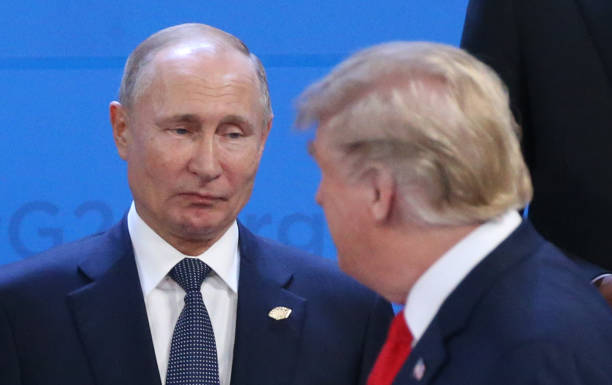U.S. Sanctions Russian Oil Titans Rosneft And Lukoil
The U.S. has imposed sweeping sanctions on Russian oil giants Rosneft and Lukoil. To target nearly half of Russia’s crude output and cutting their access to global finance. The move is expected to shake energy markets. Test US alliances with India and China. Furthermore, escalate the economic pressure on Moscow’s war machine. To end their war with Ukraine.
 U.S. President Donald Trump cancelled his meeting with Vladimir Putin at the G20 Summit in Argentina planned for Saturday. (Photo by Mikhail Svetlov/Getty Images)
U.S. President Donald Trump cancelled his meeting with Vladimir Putin at the G20 Summit in Argentina planned for Saturday. (Photo by Mikhail Svetlov/Getty Images)In a bold escalation, the U.S. Treasury Department on October 22 announced broadened sanctions on Russia’s two largest oil players. Placing Rosneft and Lukoil under restrictions that freeze any assets within U.S. jurisdiction and penalize foreign firms doing business with them. The move signals Washington’s pivot to targeting the very arteries of Moscow’s war-economy. Framed as an economic push to force a cease-fire in Ukraine.
Collectively, the two companies account for roughly half of Russia’s oil production. Rosneft alone produced 184 million metric tons in 2024. About 3.7 million barrels per day. Earning over US$13 billion. Lukoil added some 80 million tons of output that same year. Analysts say cutting their access to U.S. finance and oil services represents a serious bite.

Energy markets responded immediately. Brent crude leapt nearly 5 percent. Reflecting concerns that sanction-driven supply disruptions could tip a fragile balance. The Treasury also warned financial institutions and other companies that doing business with the designated firms could expose them to secondary U.S. penalties. Raising stakes for Indian, Chinese and Gulf buyers who rely on Russian crude.
For global defence and logistics observers, particularly those in veteran or supply-chain circles, the implications are wide. Russia’s oil exports fuel much of world’s military spending. Hence jolts in oil markets ripple into costs for energy intensive equipment, tactical fuel supplies and strategic reserves. Amid a broader push to isolate Moscow, this sanction turn may force realignment or raise costs for contract-based operations. Wherever Russian oil is a link.
Still, Moscow remained defiant. President Vladimir Putin dismissed the penalties as an “unfriendly act”. Insisting that Russia will continue its path regardless. That posture raises a larger question. That can economically tools alone force strategic change. Or will the world instead watch energy prices, alliances and readiness measures shift alongside geopolitics.
For veterans and global readiness watchers, the takeaway is clear. When oil sanctions strike large producers like Rosneft and Lukoil, the ripple effect can intersect with everything from tactical fuel logistics to global inflation. This isn’t just diplomacy. It’s operational risk in motion.
















Conversation